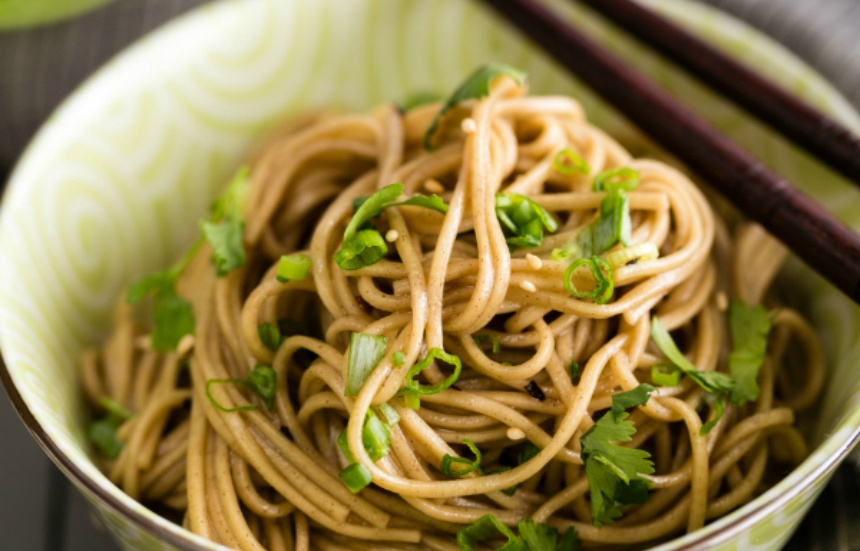Spice It Up or Cool Down with 3 Soba Recipes
Looking for a great way to warm up this winter or beat the summer heat? We've got three different and unique ways to prepare soba, or buckwheat noodles. Whether you want a spicy soba salad, tossed in a honey soy dressing, a refreshing zaru soba to cool down, or a traditional way to celebrate New Year's Eve: We've got those recipes below!
By Just One CookbookZaru Soba
https://www.youtube.com/watch?v=YtRHfaDOyxI
Zaru soba is a chilled noodle dish made from buckwheat flour and served with a soy-sauce-based dipping sauce called tsuyu. The word zaru means “strainer” in Japanese and the name of the dish was derived from the way the noodles are served over a bamboo strainer during Edo Period (1603-1868).
In this recipe, we'll share how to make a homemade dipping sauce called mentsuyu (men, noodle; tsuyu, soup broth)—but you can buy a bottle of mentsuyu in a Japanese or Asian grocery store to save time. Check out the video above for mouthwatering footage of how to make this easy and delightful dish.
Spicy Soba Salad
https://www.youtube.com/watch?v=-ojltkREE1c
Add a new spin on soba with this spicy salad recipe. All you have to do is simply toss soba in a honey soy dressing, garnish with green onion and cilantro, and voila: a delicious meal in less than 20 minutes! The full recipe can be seen in the video above.
Feel free to customize this recipe based on your preference. Add more crushed chili pepper if you like it really spicy. You can also add thin strips of cucumbers and carrots to make it into a main dish instead of a side dish. Keep in mind that soba cooks much faster than spaghetti noodles, so this salad can be completed in a very short time. You can prepare the dressing ahead of time but we don’t recommend tossing everything together until you're ready to serve, or else soba noodles will absorb the dressing and become soggy.
Soba Noodle Soup
https://www.youtube.com/watch?v=TD9mUSkKQNY
Topped with crispy shrimp tempura, fish cakes and sliced scallions, this steamy bowl of soba noodle soup is one of my favorite dishes to enjoy on the New Year’s Eve. In Japan, it is a tradition to eat soba noodles on this day.
Why Do We Eat Soba Noodle Soup on New Year Eve?
New Year’s Eve is called Omisoka (大晦日) in Japanese and it’s Japanese custom to eat soba noodles on Omisoka. We call this tradition Toshikoshi Soba (年越しそば) or year-crossing noodle. The custom and its name differs by region in Japan, but this tradition started around the Edo Period (1603-1868). There are several theories why we have this custom and here are some well-known ones:
• Long thin soba noodles symbolize a long life.
• Buckwheat can survive severe weather, which represents strength and resiliency.
• Goldsmiths use buckwheat flour to gather gold dust, which symbolizes good fortune.
• Soba noodles are easily cut while eating, which symbolizes letting go of hardship of the year.
This recipe is a fast and easy way to enjoy delicious soba for the new year, or any day of the week. Head over to Just One Cookbook at the link below to find this recipe, and the others, as well as some scrumptious pictures and lots of info about soba noodles.




